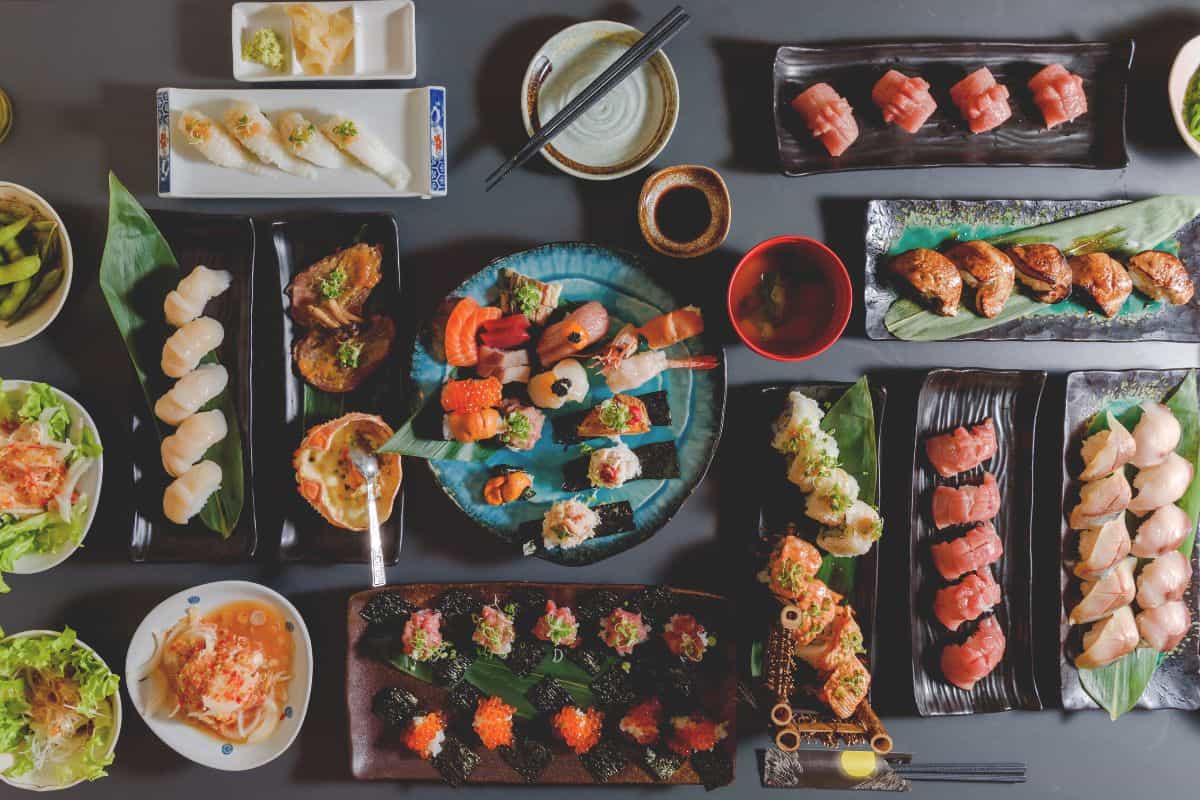Japanese cuisine is one of the most popular and unique cuisines in the world. It is known for its fresh and healthy ingredients, intricate presentation, and delicate flavors. Japanese food is a reflection of the country’s culture, history, and geography. You can also check, is Japan Muslim friendly or not.
It is a perfect blend of traditional and modern cooking techniques, which makes it a favorite among food lovers. From sushi to ramen, tempura to teriyaki, Japanese cuisine offers a wide range of dishes that are not only delicious but also visually appealing.
Japanese cuisine halal or not?
Is Japanese food halal?
Not all Japanese food is halal. Some Japanese dishes contain ingredients that are not halal, such as pork and alcohol.
However, there are many Japanese dishes that are halal, such as sushi made with halal-certified ingredients, tempura made with vegetable oil, and ramen made with halal-certified meat.
It is important to check the ingredients and preparation methods of Japanese dishes before consuming them to ensure they are halal.
What kind of food do Japanese eat?
Japanese cuisine is diverse and includes a variety of dishes such as sushi, ramen, tempura, udon, soba, yakitori, donburi, and bento boxes.
Japanese cuisine also includes a lot of seafood, rice, vegetables, and tofu. Traditional Japanese meals often consist of a main dish, soup, rice, and pickled vegetables.
Japanese cuisine is known for its emphasis on fresh, seasonal ingredients and presentation.
How can you tell if the food is halal in Japan?
In Japan, it can be challenging to find halal food as the majority of the population is not Muslim. However, there are some ways to identify halal food:
- Look for halal certification: Some restaurants and food products in Japan have halal certification from recognized halal certification bodies. You can check for halal logos or certificates displayed in the restaurant or on the packaging.
- Ask the restaurant staff: If you are unsure about the halal status of the food, you can ask the restaurant staff if the food is halal or not. They may be able to provide you with information about the ingredients used in the food.
- Check the ingredients: If you are buying packaged food, you can check the ingredients list to see if any non-halal ingredients are used. Some common non-halal ingredients include pork, alcohol, and gelatin.
- Look for vegetarian options: Vegetarian food is generally considered halal as long as it does not contain any non-halal ingredients. You can look for vegetarian options in restaurants or supermarkets.
It is important to note that even if a restaurant or food product is halal certified, it is still recommended to confirm with the staff about the halal status of the food to ensure that it meets your dietary requirements.
Is it hard to find halal food in Japan?
Finding halal food in Japan can be challenging, especially in smaller cities and towns. However, in larger cities like Tokyo and Osaka, there are many halal restaurants and grocery stores.
Some Japanese restaurants also offer halal options, but it’s always best to confirm with the restaurant staff before ordering. Additionally, many convenience stores and supermarkets offer halal-certified products.
It’s recommended to do some research and plan ahead to ensure you can find halal food during your trip to Japan.
Is Japanese food healthy?
Japanese cuisine is generally considered healthy due to its emphasis on fresh, seasonal ingredients, seafood, vegetables, and minimal use of oil and fats.
Traditional Japanese dishes such as sushi, sashimi, miso soup, and grilled fish are low in calories and high in protein, vitamins, and minerals.
However, some Japanese dishes may contain high amounts of sodium, sugar, and unhealthy fats, such as tempura and ramen.
It is important to consume Japanese food in moderation and balance it with other healthy food choices.
What is Japanese food similar to?
Japanese food is similar to other East Asian cuisines such as Chinese and Korean, but it also has its own unique flavors and cooking techniques.
Some dishes may also have similarities to Southeast Asian cuisine, such as the use of rice and noodles.
Steps to find halal food in Japan
Here are some tips to find halal food in Japan:
- Research halal food options in Japan: Start by researching halal food options in Japan. You can use online resources such as Halal Japan, Halal Navi, and Halal Gourmet Japan to find halal restaurants and food stores in Japan.
- Check for halal certification: Once you have found a halal restaurant or food store, check if they have halal certification. Halal certification ensures that the food is prepared according to Islamic dietary laws.
- Look for halal signs: Look for halal signs or symbols displayed in the restaurant or food store. These signs indicate that the food is halal and suitable for Muslims to consume.
- Ask the staff: If you are unsure about the halal status of the food, ask the staff. They should be able to provide you with information about the ingredients and preparation methods used in the food.
- Check the ingredients: If you are buying packaged food, check the ingredients list to ensure that there are no non-halal ingredients such as pork or alcohol.
- Avoid cross-contamination: Make sure that the food is not prepared or cooked with non-halal ingredients or utensils. Cross-contamination can make the food non-halal.
- Be cautious when eating out: When eating out, be cautious and ask for clarification about the halal status of the food. Avoid dishes that contain non-halal ingredients or are cooked with non-halal utensils.

